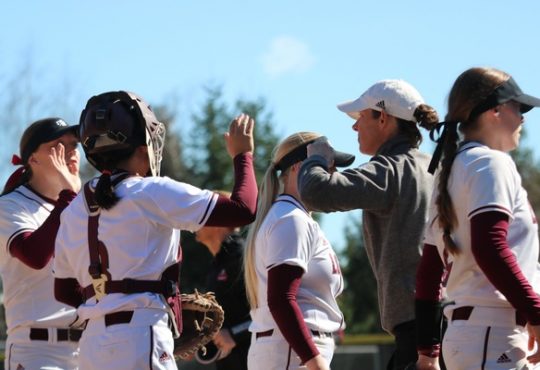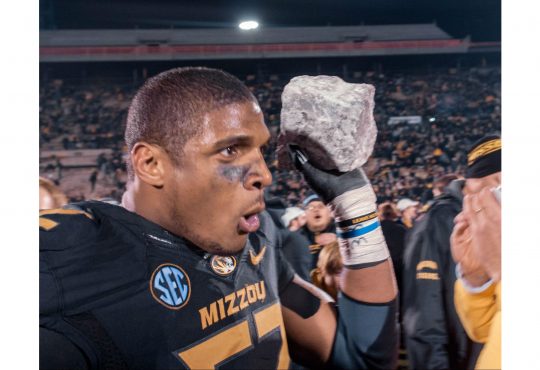As the Seattle Seahawks lined up on the 1 yard line with 26 seconds left in the Super Bowl a suffocating silence overcame my living room. I was squatting down biting my blue and green beanie with nervousness; others were clasping sweaty palms together with eyes fixed on the TV, waiting to see what drama would unfold. As Russell Wilson’s ill-fated pass fell into the hands of Patriots cornerback Malcom Butler it felt as if a gunshot went off. The people in the room rooting against the Seahawks exploded with glee, running around like children on a playground, hailing the TV and jumping with excitement. I fell back into my chair slumped over in defeat looking across the room at my fellow Seahawk fans with disbelief after experiencing the ultimate heartbreaking loss.
Rewind two weeks to what was the pinnacle of my fandom. As Russell Wilson’s pass of destiny spiraled perfectly into wide receiver Jermaine Kearse’s hands I leapt into the air in glorious celebration. Family and friends hugging, laughing, shouting and cheering, my dog in his improvisational Seahawks poncho, barking at all of the chaos transpiring, Skittles being thrown all over the room and tears welling in eyes…All of this over a team of 55 players that we will most likely never know or have any connection to other than seeing them on TV.
Fandom is a curious phenomenon. We invest countless hours of time watching games and reading and listening to analysis about our favorite teams. We feel a connection to certain players because of how good they are on (or off) the field, and yet these individuals will never reciprocate our care for them on a personal level. We might feel the commitment to wear shirts representing a team’s colors on a game day or follow superstitious routines to “help” our teams win. Even though there are millions of other individual fans just like us, we feel that our individual relationship with a team is unique and special.
And yet, despite all this that we as individual fans do, there seems to be a social stigma in the sports fan community behind investing too much emotion into a team. Fans that cry in happiness after a championship, or let a tough loss ruin their whole week are often scorned by many. Why do they care so much? It’s not like they are part of the team. Life is bigger than a sports game.
I experienced my own personal revelation about my own fandom this year. Playing collegiate football here at Puget Sound has put many aspects of life in a different perspective, including my view on sports fandom. In the offseason, starting a few years ago, I have been lucky enough to get to work out with collegiate players from much bigger schools. As I spent time around these higher division athletes, I realized that they were incredibly similar to me in their lives and as people, except for one key aspect; they had thousands of people more invested in their careers than I did. Because of this newfound relatability, I was better able to imagine myself in their situation, and began to question the logic behind fandom. Why do people who aren’t part of the team and don’t know the players or the hard work put in everyday to be successful, represent themselves through the team? And why do they act as if the accomplishments of others give them the right to gloat? Fandom, I realized, was nothing more than living a dream through other people who achieved the success that you never had.
As a longtime hardcore Seattle sports fan for all my life this was a contradicting thought process that had been conflicting with me over the last couple of years. I follow both the Seahawks and Mariners religiously. I had the great experience of watching the Seahawks win the Super Bowl last year. But yet during the whole run, I restrained some of my emotion out of a sense of embarrassment of my fandom. Sure, I really loved watching that whole season come together and expressed it publicly, talking trash to friends and starting “SEA-HAWKS” chants every time I could. But internally, I did not have the satisfaction I had imagined I would as I wasn’t letting me fully embrace another team’s success as my own.
As the new Seahawks season started, I was of course incredibly excited, but still restraining myself internally and traveling down the same emotional path that I had experienced the year before. It wasn’t until a late night conversation with a friend a few months ago where my perspective on fandom changed for me. Being a fan, my friend said, was the one thing in his life that he would let himself be illogical about. And it hit me. In our busy lives where we are constrained by rubrics, deadlines and rules we turn to entertainment for escape. We are looking for just a moment where the pressures of everyday life disappear. Sports are no different than any other form of entertainment. Like music that allows you to find a meditative peace, being a sports fan is another outlet from the real world. If you try to restrain yourself with too much real world logic while participating as a fan, it hurts the experience. If you don’t let yourself fully appreciate the success of your favorite team, then why waste hours and hours and days and days of valuable time dedicating yourself to watching games and reading about your team. Take a leap and fully immerse yourself into the world of fandom just as moviegoers immerse themselves in the worlds created by cinema. Wear your lucky t-shirt on game day and sit in your lucky seat. Spend the week reading up on the big game and watch hype videos before you go to bed until your eyelids get heavy. Celebrate like crazy when your team scores and hang your head when they fall a yard short of a championship. Embrace the full spectrum of fandom, not because it’s logical or normal, but because of the wonders and benefits of letting a part of yourself escape from the restraints found in all other aspects of life.






